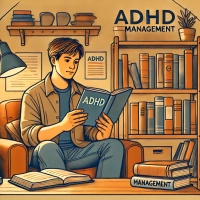Can Iron and Vitamin D Deficiencies Increase the Risk of Suicidal Thoughts?

Iron and vitamin D deficiencies are commonly known to affect physical health, but growing research suggests they can also significantly impact mental health, potentially influencing suicidal thoughts and behaviors. Understanding the relationship between these deficiencies and mental health is crucial for developing comprehensive treatment strategies for depression and suicidal ideation.
Both iron and vitamin D deficiencies can significantly impact mental health, potentially increasing the risk of depression and suicidal thoughts. Recognizing and addressing these deficiencies through dietary changes, supplementation, and regular monitoring can be a vital part of managing mental health and improving overall well-being. If you experience symptoms of these deficiencies, it is important to seek medical advice for proper diagnosis and treatment.
Symptoms of Iron and Vitamin D Deficiency
Symptoms of Iron Deficiency
Iron deficiency can lead to a variety of physical and psychological symptoms, particularly when it progresses to anemia. These symptoms can negatively impact mental health, potentially increasing the risk of depression and suicidal thoughts.
- Fatigue and Weakness: Persistent tiredness and lack of energy can hinder daily activities and contribute to feelings of depression.
- Cognitive Impairment: Difficulty concentrating, poor memory, and reduced cognitive performance can lead to frustration and decreased self-esteem.
- Irritability: Increased irritability and mood swings can strain personal relationships and social interactions.
- Paleness: Noticeable paleness of the skin and mucous membranes, which may be accompanied by other physical signs like brittle nails and hair loss.
- Shortness of Breath: Difficulty breathing during physical activities due to reduced oxygen-carrying capacity of the blood.
Symptoms of Vitamin D Deficiency
Vitamin D deficiency is associated with a range of physical and mental health symptoms, which can contribute to the development and exacerbation of mood disorders.
- Depressed Mood: Persistent feelings of sadness and hopelessness, which are common in depression.
- Bone and Muscle Pain: Chronic pain and discomfort in bones and muscles, which can affect overall well-being and mood.
- Fatigue: General tiredness and low energy levels, impacting daily activities and motivation.
- Sleep Disturbances: Difficulty falling or staying asleep, leading to further fatigue and mood disturbances.
- Cognitive Impairment: Problems with concentration, memory, and decision-making abilities.
How often do you feel overwhelmed by daily responsibilities and tasks?
Did you frequently feel excessively stressed or anxious about school or social situations during your childhood or teenage years?
Do you find it difficult to concentrate on tasks or conversations, even when they interest you?
As a child, did you have trouble paying attention in class or completing homework assignments?
How frequently do you experience feelings of sadness, hopelessness, or emptiness?
Were there periods in your past where you felt persistently sad or lost interest in activities you once enjoyed?
Do you often feel irritable or have sudden mood swings without an obvious cause?
Did you have episodes of unexplained irritability or anger during your childhood or adolescence?
How often do you struggle with sleep, such as difficulty falling asleep, staying asleep, or waking up too early?
Have you had longstanding issues with sleep since you were a child or teenager?
Do you frequently feel fatigued or lack energy, even after a full night’s sleep?
Were there times in your earlier years when you felt constantly tired or lacked the energy to engage in activities?
Do you find yourself avoiding social interactions or feeling uncomfortable in social settings?
As a child, did you often feel left out or struggle to make friends?
How often do you experience feelings of worthlessness or excessive guilt?
Were there times in the past when you felt like you couldn't do anything right or felt overly guilty about things?
Do you engage in self-harm or have thoughts of harming yourself?
Have you ever had thoughts of self-harm or attempted self-harm in the past?
Do you find it difficult to manage your emotions, often feeling either too intense or numb?
Did you experience intense emotional episodes or feel emotionally detached during your earlier years?
These questions are designed to provide a comprehensive understanding of an individual's mental health, considering both current symptoms and past experiences.
Addressing Psychological Problems Related to Iron and Vitamin D Deficiencies and Suicidal Thoughts
Iron and vitamin D deficiencies can have profound effects on mental health, potentially contributing to feelings of depression and suicidal ideation. Below are ways to address the specific problems identified through the diagnostic questions, with a focus on managing deficiencies and improving mental health outcomes.
1. Feeling Overwhelmed by Daily Responsibilities
Solution:
- Nutritional Support: Ensure adequate intake of iron and vitamin D through diet and supplements. Foods rich in iron include lean meats, beans, and spinach. Vitamin D can be obtained from fatty fish, fortified dairy products, and sunlight exposure.
- Time Management: Use organizational tools such as planners or digital apps to manage tasks. Break tasks into smaller, manageable steps.
2. Excessive Stress and Anxiety
Solution:
- Regular Monitoring: Check iron and vitamin D levels regularly. Addressing deficiencies can help reduce stress and anxiety.
- Mindfulness and Relaxation Techniques: Practice mindfulness, meditation, or yoga to reduce stress levels. These practices can help in managing anxiety.
3. Difficulty Concentrating
Solution:
- Supplementation: Take iron and vitamin D supplements if levels are low, as these nutrients are crucial for cognitive function.
- Cognitive Behavioral Techniques: Use techniques such as breaking tasks into smaller steps and using focus timers (e.g., the Pomodoro technique).
4. Persistent Sadness, Hopelessness, or Emptiness
Solution:
- Dietary Changes: Include foods rich in iron and vitamin D in your diet to improve mood and energy levels.
- Therapy: Consider cognitive-behavioral therapy (CBT) to address negative thought patterns and improve emotional regulation.
5. Irritability and Mood Swings
Solution:
- Stable Routine: Establish a consistent daily routine that includes regular meals, exercise, and sleep, which can stabilize mood.
- Supplementation: Ensure iron and vitamin D levels are within the normal range through diet and supplements, as deficiencies can cause mood disturbances.
6. Sleep Disturbances
Solution:
- Sleep Hygiene: Maintain good sleep hygiene by keeping a regular sleep schedule, avoiding caffeine and electronics before bed, and creating a restful sleep environment.
- Nutritional Intervention: Address any deficiencies in iron and vitamin D, as these can affect sleep quality.
7. Fatigue and Lack of Energy
Solution:
- Balanced Diet: Incorporate iron-rich foods and vitamin D into your diet. Consider supplements if dietary intake is insufficient.
- Regular Exercise: Engage in regular physical activity to boost energy levels and improve overall health.
8. Avoiding Social Interactions
Solution:
- Therapy: Engage in social skills training or group therapy to improve social interactions and reduce feelings of isolation.
- Nutritional Support: Ensure adequate intake of iron and vitamin D to support overall mental health.
9. Feelings of Worthlessness or Excessive Guilt
Solution:
- Professional Help: Seek counseling or therapy to address feelings of worthlessness and guilt. Cognitive-behavioral therapy can be particularly effective.
- Nutritional Balance: Ensure iron and vitamin D levels are within normal limits to support emotional well-being.
10. Suicidal Thoughts or Self-Harm
Solution:
- Immediate Support: If experiencing suicidal thoughts or behaviors, seek immediate help from a mental health professional or crisis hotline.
- Medical Evaluation: Have a healthcare provider assess iron and vitamin D levels and provide appropriate treatment for deficiencies.
- Ongoing Therapy: Engage in regular therapy sessions to develop coping strategies and address underlying mental health issues.
Practical Examples for Addressing Iron and Vitamin D Deficiencies to Reduce Suicidal Thoughts
Example 1: Dietary Changes to Address Deficiencies
Situation: Jane has been feeling persistently tired, irritable, and hopeless, and she recently started having suicidal thoughts. Her doctor diagnosed her with iron deficiency anemia and low vitamin D levels.
Strategy: Jane's doctor recommended dietary changes to increase her iron and vitamin D intake. She started incorporating iron-rich foods such as lean meats, spinach, and lentils into her diet. For vitamin D, she included fatty fish like salmon and fortified dairy products.
Outcome: After a few weeks, Jane noticed an improvement in her energy levels and mood. Her depressive symptoms and suicidal thoughts decreased significantly, and she felt more hopeful and positive.
Example 2: Supplementation to Correct Deficiencies
Situation: Mark has been struggling with concentration issues, fatigue, and mood swings. Blood tests revealed that he has both iron and vitamin D deficiencies.
Strategy: Mark's healthcare provider prescribed iron and vitamin D supplements. He was advised to take these supplements daily, along with a balanced diet to support absorption.
Outcome: Within a month, Mark experienced better concentration, reduced fatigue, and stabilized mood swings. His overall mental health improved, and he no longer felt overwhelmed by daily tasks.
Example 3: Regular Monitoring and Professional Support
Situation: Sara, a college student, has been dealing with severe depression and suicidal thoughts. Her psychiatrist suggested that nutritional deficiencies might be contributing to her mental health issues.
Strategy: Sara began regular blood tests to monitor her iron and vitamin D levels. Her healthcare team adjusted her supplementation and diet based on the test results. Additionally, she started therapy sessions to address her depressive thoughts.
Outcome: Regular monitoring allowed for timely adjustments to her treatment plan. As her nutrient levels normalized, Sara's depressive symptoms and suicidal thoughts lessened. Therapy helped her develop coping strategies and improve her mental resilience.
Example 4: Combining Lifestyle Changes with Nutritional Interventions
Situation: Tom has a history of depression and recently experienced an increase in suicidal ideation. His doctor found that he had low iron and vitamin D levels.
Strategy: Tom's treatment plan included taking iron and vitamin D supplements, incorporating a nutrient-rich diet, and engaging in regular physical activity like walking and yoga to enhance mood and energy levels.
Outcome: The combination of lifestyle changes and nutritional interventions led to significant improvements in Tom's mental and physical health. His depressive symptoms and suicidal ideation decreased, and he felt more energetic and motivated.
Example 5: Educational Workshops on Nutritional Deficiencies
Situation: A community mental health center noticed a high prevalence of depression and suicidal thoughts among their clients. They decided to investigate possible nutritional deficiencies as a contributing factor.
Strategy: The center organized educational workshops to inform clients about the importance of iron and vitamin D for mental health. They provided resources on how to include these nutrients in their diet and offered free blood tests for deficiency screening.
Outcome: Participants who attended the workshops and followed the dietary recommendations reported improved mental health outcomes. The workshops also raised awareness about the link between nutrition and mental health, leading to better community support and engagement.
Here are ten unique self-help strategies to manage iron and vitamin D deficiencies and their associated mental health impacts, such as depression and suicidal thoughts. These strategies focus on improving overall well-being through practical steps that do not repeat previously mentioned solutions.
1. Engage in Physical Activity
Step-by-Step:
- Choose an activity you enjoy (e.g., walking, swimming, cycling).
- Start with short sessions (15-20 minutes) and gradually increase the duration.
- Aim for at least 30 minutes of moderate exercise most days of the week.
- Incorporate strength training exercises twice a week to improve muscle mass and bone density.
2. Optimize Sleep Hygiene
Step-by-Step:
- Establish a regular sleep schedule, going to bed and waking up at the same time every day.
- Create a bedtime routine that includes relaxing activities (e.g., reading, taking a warm bath).
- Ensure your sleep environment is comfortable, dark, and quiet.
- Avoid caffeine, alcohol, and heavy meals before bedtime.
- Limit screen time an hour before bed to reduce blue light exposure.
3. Stay Hydrated
Step-by-Step:
- Drink at least 8 cups (2 liters) of water daily.
- Carry a reusable water bottle to remind yourself to drink regularly.
- Include hydrating foods in your diet, such as fruits and vegetables.
- Reduce intake of diuretic beverages like coffee and alcohol that can dehydrate you.
4. Practice Mindfulness and Stress-Reduction Techniques
Step-by-Step:
- Set aside time each day for mindfulness practices such as meditation, deep breathing, or yoga.
- Use guided meditation apps or videos if you're new to the practice.
- Incorporate stress-reduction techniques, like progressive muscle relaxation, into your daily routine.
- Practice being present in the moment, focusing on your breath, and letting go of intrusive thoughts.
5. Plan Balanced Meals
Step-by-Step:
- Create a weekly meal plan that includes a variety of nutrient-dense foods.
- Focus on incorporating lean proteins, whole grains, healthy fats, and plenty of fruits and vegetables.
- Include iron-rich foods (e.g., red meat, beans, spinach) and vitamin D-rich foods (e.g., fatty fish, fortified dairy products).
- Prepare meals in advance to ensure you have healthy options readily available.
6. Engage in Creative Activities
Step-by-Step:
- Choose a creative activity you enjoy, such as painting, writing, or playing music.
- Set aside regular time each week to engage in your chosen activity.
- Join a class or group to learn new skills and connect with others who share your interests.
- Use creative expression as a way to process and manage emotions.
7. Connect with Nature
Step-by-Step:
- Spend time outdoors every day, aiming for at least 20-30 minutes.
- Engage in activities like walking, hiking, or gardening to connect with nature.
- Use natural sunlight exposure to boost vitamin D levels.
- Practice mindfulness while in nature, focusing on the sights, sounds, and smells around you.
8. Limit Alcohol and Avoid Smoking
Step-by-Step:
- Set limits for alcohol consumption, adhering to recommended guidelines (e.g., no more than one drink per day for women, two for men).
- Seek support if you find it challenging to reduce or quit smoking.
- Replace these habits with healthier alternatives, such as drinking herbal tea or exercising.
- Track your progress and celebrate milestones in reducing or quitting these habits.
9. Join a Support Group
Step-by-Step:
- Look for local or online support groups for individuals with similar health concerns.
- Attend regular meetings to share experiences and gain insights from others.
- Use the group as a source of motivation and accountability.
- Offer support to others, which can enhance your own sense of purpose and well-being.
10. Educate Yourself About Nutrition and Mental Health
Step-by-Step:
- Read reputable sources on the connection between nutrition and mental health.
- Take online courses or attend workshops to deepen your understanding.
- Apply what you learn to make informed decisions about your diet and lifestyle.
- Share knowledge with family and friends to create a supportive community.
Preparatory Steps for Addressing Iron and Vitamin D Deficiencies
Before diving into self-help strategies, it's important to prepare effectively. Here are seven steps to get started:
1. Acknowledge the Problem
- Accept that addressing nutritional deficiencies is crucial for mental and physical well-being.
2. Educate Yourself
- Learn about the symptoms and effects of iron and vitamin D deficiencies from reliable sources.
3. Seek Professional Diagnosis
- Consult a healthcare provider to get accurate blood tests and assessments of your nutritional status.
4. Set Realistic Expectations
- Understand that improving nutritional deficiencies and mental health is a gradual process.
5. Identify Your Symptoms
- Keep a journal to track symptoms related to iron and vitamin D deficiencies, such as fatigue, mood changes, and cognitive issues.
6. Create a Support System
- Inform close family and friends about your condition and seek their support and understanding.
7. Develop a Plan
- Work with healthcare professionals to create a comprehensive plan that includes dietary changes, supplementation, and lifestyle adjustments tailored to your needs.
By following these preparatory steps and implementing the self-help strategies, individuals can effectively manage iron and vitamin D deficiencies and improve their mental health and overall quality of life.
Iron and Brain Health:
- Did you know that iron is crucial for the development of the hippocampus, a brain region involved in forming and retrieving memories? This highlights the importance of adequate iron levels for maintaining cognitive functions and emotional stability.
Vitamin D and Serotonin Production:
- Did you know that vitamin D helps regulate the production of serotonin, a neurotransmitter that influences mood, appetite, and sleep? Adequate levels of vitamin D can therefore contribute to better mood regulation and reduced depressive symptoms.
Global Iron Deficiency Rates:
- Did you know that iron deficiency is the most common nutritional deficiency worldwide, affecting nearly 30% of the global population? This widespread issue underscores the need for increased awareness and prevention measures.
Sunlight and Vitamin D:
- Did you know that just 10-15 minutes of sunlight exposure a few times a week can significantly boost your vitamin D levels? This is especially important for individuals living in regions with limited sunlight.
Iron Deficiency and Mental Disorders:
- Did you know that studies have linked iron deficiency in early childhood to an increased risk of developing mental disorders later in life? Ensuring adequate iron intake during critical developmental periods is essential for long-term mental health.
Vitamin D and Seasonal Affective Disorder (SAD):
- Did you know that vitamin D deficiency has been linked to Seasonal Affective Disorder (SAD), a type of depression that occurs during the winter months? Supplementing with vitamin D can help alleviate the symptoms of SAD.
Impact of Iron on Sleep:
- Did you know that iron deficiency can lead to restless leg syndrome, which significantly disrupts sleep? Poor sleep quality can exacerbate feelings of depression and anxiety.
Vitamin D and Immune Function:
- Did you know that vitamin D plays a critical role in immune function, and its deficiency is associated with an increased risk of infections and autoimmune diseases? A healthy immune system is also linked to better mental health.
Iron Supplementation and Cognitive Performance:
- Did you know that iron supplementation in individuals with iron deficiency has been shown to improve cognitive performance and academic achievement? This is particularly beneficial for children and adolescents.
Vitamin D's Role in Neuroprotection:
- Did you know that vitamin D has neuroprotective properties that help protect the brain from damage and degeneration? This can contribute to better mental health and reduced risk of neurodegenerative diseases.
Professional Advice and When to Seek Help
Addressing iron and vitamin D deficiencies effectively often requires professional guidance. Here are recommendations on when and how to seek professional help, including useful types of therapy and interventions.
When to Seek Professional Help
1. Persistent Symptoms:
- If symptoms of iron and vitamin D deficiencies, such as fatigue, depression, cognitive impairments, or suicidal thoughts, persist despite self-help measures, it’s crucial to seek professional evaluation.
2. Impact on Daily Life:
- When deficiencies significantly impact daily functioning, including work, school, relationships, and overall well-being.
3. Severe Mood Changes:
- If experiencing severe mood swings, irritability, or persistent feelings of sadness and hopelessness, it’s essential to consult a healthcare provider.
4. Suicidal Thoughts:
- Immediate professional help is necessary if experiencing suicidal thoughts or behaviors. Contact a mental health professional or crisis hotline immediately.
5. Complex Health Conditions:
- If deficiencies are accompanied by other health issues or mental health disorders, such as anxiety or bipolar disorder.
How to Seek Professional Help
1. Primary Care Physician:
- Start with a visit to your primary care doctor for an initial assessment. They can perform blood tests to check iron and vitamin D levels and refer you to specialists if needed.
2. Dietitian or Nutritionist:
- A registered dietitian or nutritionist can provide personalized dietary advice to address deficiencies and improve overall nutritional status.
3. Psychiatrist:
- A psychiatrist can diagnose and treat mental health conditions exacerbated by nutritional deficiencies, including prescribing medications and recommending appropriate therapies.
4. Psychologist or Therapist:
- Psychologists and therapists offer counseling and therapeutic interventions to help manage depressive symptoms and develop coping strategies.
5. Endocrinologist:
- For complex cases involving hormonal imbalances or chronic conditions affecting nutrient absorption, an endocrinologist may be consulted.
Useful Types of Therapy and Interventions
1. Cognitive Behavioral Therapy (CBT):
- CBT helps individuals manage depression by identifying and changing negative thought patterns and behaviors. It’s effective in addressing mood disorders associated with nutritional deficiencies.
2. Nutritional Counseling:
- Working with a dietitian to develop a balanced diet plan that ensures adequate intake of iron and vitamin D, along with other essential nutrients.
3. Medication Management:
- For severe cases, psychiatrists may prescribe antidepressants or other medications to stabilize mood while addressing nutritional deficiencies concurrently.
4. Psychotherapy:
- Regular sessions with a therapist to explore underlying emotional issues, develop coping strategies, and improve mental health.
5. Group Therapy:
- Participating in group therapy sessions can provide support from others facing similar challenges, reducing feelings of isolation and promoting shared learning.
6. Mindfulness-Based Stress Reduction (MBSR):
- MBSR techniques can help reduce stress and improve mental clarity, benefiting those struggling with mood disturbances due to deficiencies.
7. Regular Monitoring and Follow-Up:
- Regular follow-up appointments with healthcare providers to monitor nutrient levels, adjust treatment plans, and ensure ongoing support.
Conclusion
Understanding the potential impact of iron and vitamin D deficiencies on mental health is crucial for both prevention and treatment of depression and suicidal thoughts. These nutrients play significant roles in brain function, mood regulation, and overall cognitive health. Iron is essential for neurotransmitter production and cognitive functions, while vitamin D influences serotonin levels and has anti-inflammatory properties that affect emotional stability.
Addressing deficiencies through dietary changes, supplementation, and regular monitoring can significantly improve mental health outcomes. Practical steps such as incorporating iron-rich and vitamin D-rich foods into your diet, taking supplements as recommended by healthcare providers, and maintaining a balanced lifestyle with adequate sunlight exposure can help mitigate the risks associated with these deficiencies.
Recognizing the symptoms of iron and vitamin D deficiencies, such as fatigue, cognitive impairment, irritability, and mood swings, and seeking timely medical advice is essential. By proactively managing these nutritional aspects, individuals can enhance their mental well-being and reduce the risk of severe depression and suicidal ideation.
Overall, maintaining adequate levels of iron and vitamin D is a vital component of mental health care. Through awareness, proper nutrition, and professional guidance, it is possible to address these deficiencies and support a healthier, more balanced life.
"The UltraMind Solution: The Simple Way to Defeat Depression, Overcome Anxiety, and Sharpen Your Mind" by Mark Hyman, M.D.
- This book explores how nutritional imbalances can affect mental health and offers practical advice for addressing these issues through diet and lifestyle changes.
"The Vitamin D Solution: A 3-Step Strategy to Cure Our Most Common Health Problems" by Michael F. Holick, Ph.D., M.D.
- Dr. Holick discusses the importance of vitamin D for overall health, including mental well-being, and provides guidance on how to ensure adequate vitamin D levels.
"Nutrient Power: Heal Your Biochemistry and Heal Your Brain" by William J. Walsh, Ph.D.
- This book delves into the role of various nutrients, including iron and vitamin D, in brain health and mental disorders, offering insights into how nutritional therapy can support mental health.
"The Mood Cure: The 4-Step Program to Take Charge of Your Emotions--Today" by Julia Ross
- Ross provides a comprehensive guide on how to improve mood and emotional well-being through dietary changes and supplementation, addressing common nutrient deficiencies that affect mental health.
"Your Brain on Food: How Chemicals Control Your Thoughts and Feelings" by Gary L. Wenk, Ph.D.
- This book explains how different nutrients and dietary choices impact brain function and mood, emphasizing the importance of maintaining balanced nutrition for mental health.
"Optimum Nutrition for the Mind" by Patrick Holford
- Holford offers practical advice on how to optimize brain function and mental health through proper nutrition, highlighting the role of essential vitamins and minerals.
"The Chemistry of Calm: A Powerful, Drug-Free Plan to Quiet Your Fears and Overcome Your Anxiety" by Henry Emmons, M.D.
- This book combines insights on nutrition, mindfulness, and natural therapies to help manage anxiety and improve mental health, including addressing deficiencies in critical nutrients.
"The Depression Cure: The 6-Step Program to Beat Depression without Drugs" by Stephen S. Ilardi, Ph.D.
- Dr. Ilardi presents a holistic approach to managing depression, including lifestyle changes, dietary adjustments, and the importance of addressing nutrient deficiencies.
"Anxiety Free: Unravel Your Fears Before They Unravel You" by Robert L. Leahy, Ph.D.
- Leahy provides strategies to manage anxiety, with sections discussing the impact of diet and nutrition on mental health.
"Eat to Beat Depression and Anxiety: Nourish Your Way to Better Mental Health in Six Weeks" by Drew Ramsey, M.D.
- Dr. Ramsey offers a plan to improve mental health through diet, focusing on foods and nutrients that support brain function and emotional well-being.
- Video response to the topic: Can Iron and Vitamin D Deficiencies Increase the Risk of Suicidal Thoughts?
While self-care strategies are valuable for managing symptoms related to psychological issues, they are not a substitute for professional treatment. It's important to recognize that self-care complements but does not replace the expert guidance and personalized therapy provided by qualified mental health professionals. Engaging in self-care is beneficial for general well-being and can be part of a broader treatment plan, but it's crucial to consult with a healthcare provider to ensure that you are receiving comprehensive care, especially for complex psychological conditions. This approach ensures that any underlying issues are properly addressed, potentially enhancing the effectiveness of self-care practices.









